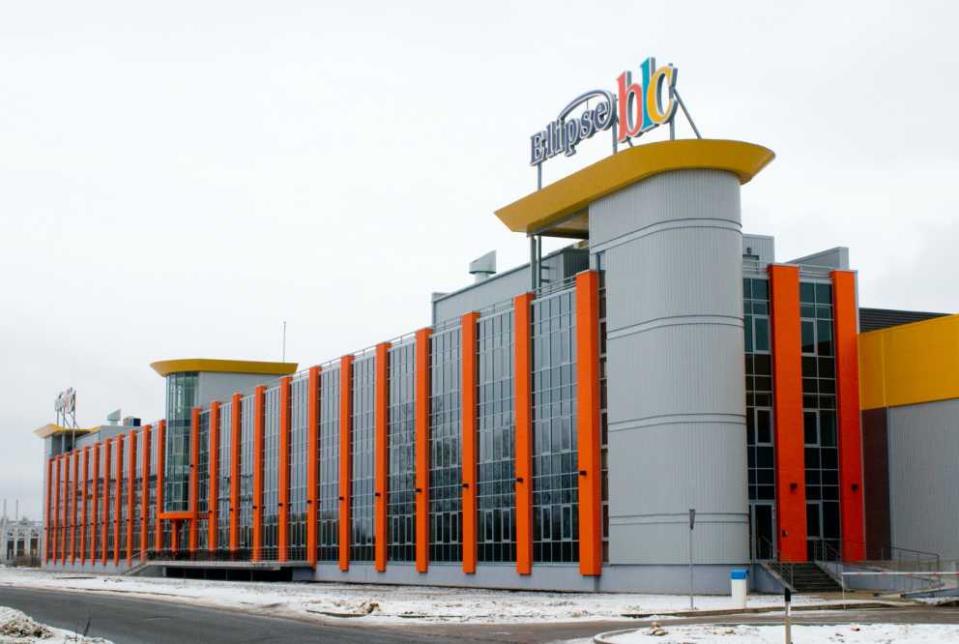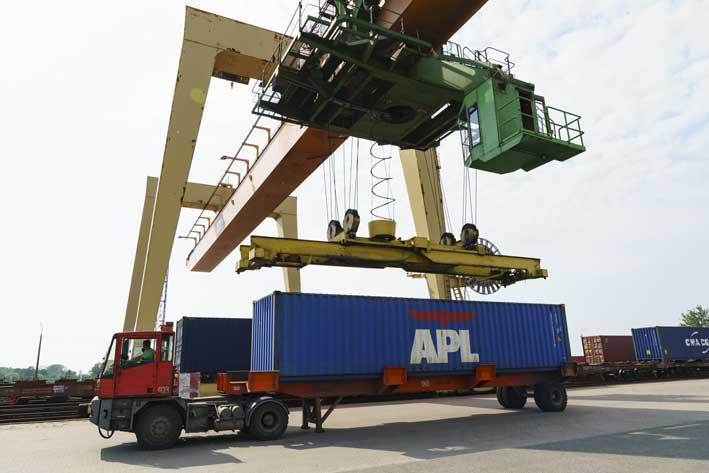Hili Group has been operating for almost a century now. What has been the secret of your success?
We look forward and not backwards. That is the simple way of putting it.
In a rapidly changing world, is the firm's past standing you in good stead or is it a hindrance for mapping the future?
The world is always changing, and our history serves us well. If you look at the last 50 to 60 years, things changed very rapidly, particularly in the last two decades. So our experience is a positive for us.
You have been operating container terminal facilities in Latvia and Italy for many years now. Where is the company heading in this sector in the next five, ten years?
We have invested heavily in both countries and, for example, have very recently received another crane at the Riga terminal.
We keep investing and developing both in Italy and Latvia, particularly in IT, equipment and training of people. That is something continuous.

To give a good service and execute properly is a given. But we keep on expanding our facilities and training our people as the terminal business is a very long-term one. It's also very strategic for the country, with a high multiplier factor and affecting many stakeholders who have businesses around the port. So your performance is of utmost importance.
Besides the container terminal itself, we are also developing our distribution centres. Today we have a distribution centre at the port in Riga, where we have over 30,000 square metres of covered warehousing. At Riga Airport, we have over 30,000 square metres of warehousing.
In Italy, we have 17,000 square metres of warehousing.
To support our facilities in Riga, we also have 4,000 square metres of commercial real estate for rent near the airport and another 3,000 in the centre of Riga.
In the immediate future, we have plans to develop a 30,000 square metre facility here in Malta as a logistic base for distribution to markets around the Mediterranean, in particular in North Africa. This will involve an investment of around €30 million.

Beyond that, of course, we are very interested to expand our activities in other places, including in the Baltic and Black Seas, as well as in the Mediterranean and in North Africa.
Moreover, once we have a presence in a country, we do not just focus on the terminal sector but leverage our experience to seek opportunities in other activities in the country.
You are now venturing into the energy sector as well. This includes the acquisition of power plants in Croatia. What's the business rationale for this move?
The transition to sustainable and clean energy is necessary to maintain the planet's ecological balance. We want to play a part in this transition and see that as well as being socially conscious it is also economically attractive. This is due to the technological advances that have been made which are enhancing productivity efficiency.
Most importantly, we are also seeing that there is a political will, which is required to see a shift in renewables over the coming decades.
We have completed the development of the first bio-power plant in Croatia and have another three plants lined up. Croatia has an abundant supply of wood thanks to the involvement in the paper industry and therefore it makes sense to make us of this naturally abundant resource.
Going forward, we are looking for further development, throughout Europe, including in wind farming.

Tell us about the company's local renewable energy project
Together with two of my brothers, we have completed the development of a 2.4MW solar farm in Malta. In fact, this project is the country's first solar farm to be completed under Malta's renewable energy plan. This is a project of some scale, with over 7,200 panels in an area of just under 30,000 square metres. This project makes use of Malta's most abundant and clean energy resource.
Hili Company is one of a handful of local firms which are truly global. What does it take for a small company from a small country to make it in the big out there?
We realised from early on that, in order to grow we had to look beyond Malta's shores as ours is a relatively small market.
As a result, our business has developed overseas for many decades now. I believe that what allowed us to be successful internationally is our competence and knowhow. Take our terminal business, for example. We have deep competence in what is quite a niche area, and this is recognised by the industry.

Moreover, when we invest overseas, we look to have a proper presence in these countries. This includes learning the nuances of each place where we work and adapting accordingly.
In fact, when we develop a physical presence in a country, we look for additional opportunities that allow us to leverage our experience there.
The group has now acquired a sizeable yacht with full catering facilities and the capacity to host events of various sizes, from conferences to parties to product launches. Which niche are you trying to occupy in this particular market?
We operate our shipping business in Malta under the brand Mariner Shipping. We have a 46-metre yacht with good catering facilities - it was built specifically for that. We are currently evaluating the exact niche we want to tap, whether it's something like a floating restaurant or for events.
How important is technology in the business world? How does Hili Group make the most of technology?
Technology is definitely a key enabler in most industries and can determine a company's success. We place a lot of emphasis on investing and developing our technological resources.
At our terminals, for example, we have invested heavily in technology. This can be seen throughout in our operations - from real-time information, to operational data, allowing decisions to be taken quickly and operations to run seamlessly. This ensures efficiency and reduces human error.

Moreover, the business intelligence and the data analysis systems implemented at our terminals give our management powerful tools for monitoring performance and resource planning.
Technology also allows us to work closely with our clients and other stakeholders to provide real-time date change.
We have built a strong technology team to be able to build our own tools. For example, we have developed our own warehouse management system as well as tools for our agency business.
You have led the Group for many years. Looking forward, what sort of leadership do you think will win the future?
Our focus has always been long-term, and our strategic decision-making is driven by this principle. We have built our reputation and credibility over many years.
While we lean on our experience, we also maintain a lean structure with a hands-on approach that allows us to be flexible, so as to respond quickly to the environment.
We have developed a strong leadership team over many years. In fact, most of our management has been with us for many years. People who join us don't normally leave, which I think is a good sign. The team has in-depth experience and knowhow and they understand the values that have become integrated in the company.

At the same time, it is very important not to become complacent. There is a constant drive to improve.
Of course, we make changes continuously to better our structures, and we try to secure the best human resources.
Last year, we made some changes including the appointment of a new CEO, Edward Hili, who will lead the company into the next phases of its growth. So, we have new blood coming in all the time.
The principles and values filter down to the employees and it is imperative that the leadership sets the right tone.